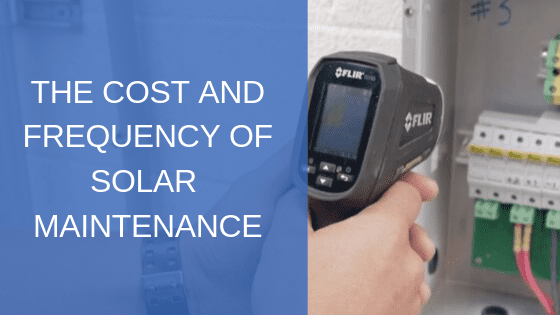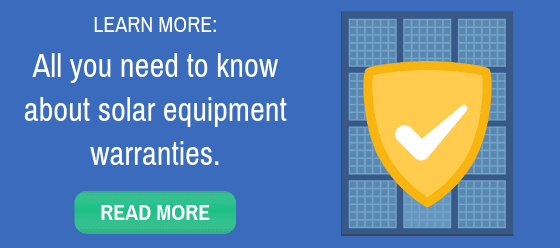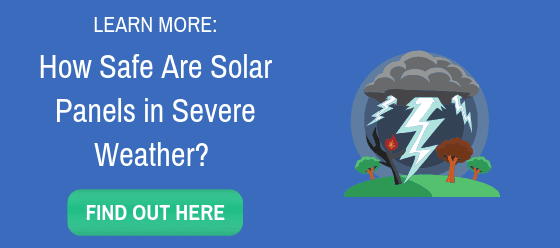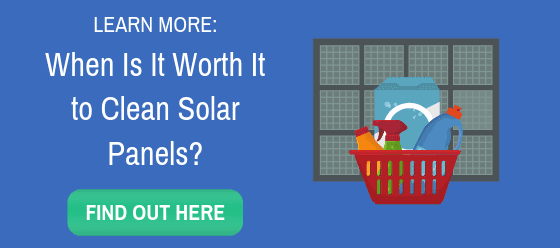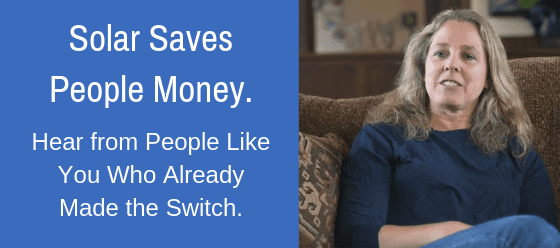Do solar panels or PV solar systems need maintenance, and if so, how often and how much will it cost? If you’re considering installing a solar panel system, we’re going to bet these questions have crossed your mind. Understanding what kind of work solar is going to be after the switch is flipped on is an important thing to consider before you install.
In this blog, we’re going to answer those questions so you know what you can really expect before making the commitment.
But first off, we want to make a quick distinction. There are two types of maintenance we’ll talk about. Solar panel maintenance and PV system maintenance. Solar panel maintenance will refer to things like cleaning dust or snow off your panels - routine things to maintain the health and productivity of your system. PV system maintenance, on the other hand, refers to making repairs and corrections to the PV system if something goes wrong.
How Often Do Solar Panels and Systems Need Maintenance?
PV solar systems require little maintenance over their 30+-year lifespan. Most blogs and articles you read will corroborate that. Unless your solar PV system has bad parts, was installed incorrectly, or an outside factor causes damage to the system, there’s little PV system maintenance needed to keep your solar system running. The same goes for solar panel maintenance. In most cases, you don’t even have to worry about cleaning your panels!
And there’s a good reason for this. Unlike more complex machines - HVAC units, cars, wind turbines (that’s right, we went there), solar systems have very few moving parts. They’re remarkably simple for the work they do.
That said, the most complex part of your system, the inverter, is what is most likely to have issues. But there’s no need to fear. All leading inverter brands have warranties that should cover any issues that arise within the first 10 - 25 years. Solar batteries also come with warranties, though they are often much shorter than panels’ and inverters’.
One of the best ways to minimize the need for PV system maintenance is by starting off on the right foot. Partnering with an experienced, reputable solar installer should be #1 when going solar. The benefits are twofold: you’re more likely to have a properly installed system with quality parts, and you’re more likely to be covered by effective warranties. Click here for five things to look for when choosing a solar installer.
While the best installer may not be the least expensive, your future self might thank you, and it could be cheaper in the long run.
But no matter how well your solar company installs your system, there’s always going to be risks. Faulty equipment, acts of God, just plain down bad luck - these are all things that can cause your solar system some grief.
Common Causes of Solar System Damage
While we will say solar systems typically require little maintenance, things happen. Here are a few of the most common ones.
Damaged Solar Panels
A sturdy layer of tempered glass protects each panel. This glass can take a serious beating before breaking. According to manufacturer testing, most solar panels can withstand impact from hail up to an inch in diameter falling at about 50 miles per hour (that’s three times the size of the average piece of hail and falling 30 mph faster).
That said, damaged panels can happen in extremely severe weather and by freak accidents.
Arc Faults
Arc faults happen when there is a high power discharge of electricity between conductors, which can give off heat. This heat can break down the wire, which might start an electrical fire.
Because none of that sounds good, inverters are equipped with arc fault protection. If the inverter senses anything that may be an arc fault, it shuts down to prevent things from getting out of hand and causing damage to your system or property - this is called fault mode.
Depending on your inverter, you might see an error message on the display to indicate your inverter is in fault mode.
GFCI (Ground Fault Circuit Interruption)
GFCIs also has to do with inverters. In the event that an electrical current finds a path to the ground, it will trigger a ground fault alert. To keep everything safe, an inverter will shut down when this happens.
GFCIs can be caused by an excessive amount of moisture in the junction box, broken panels, or damaged wiring (often caused by squirrels or other small and mischievous animals).
How Can I Tell If My Solar System Needs Maintenance?
If you expect something is wrong with your solar system and may need PV system maintenance, a good place to start is to see what your system is producing. How can you tell if your solar system is producing what it should? Either through checking your solar system monitoring software or analyzing your electricity bill.
If your installer set you up with system monitoring, you should be able to view historic production data. If you have a feeling something with your system is wrong, take a look at how much your system was producing that month in previous years and compare it to what it’s producing now.
While solar panel degradation and changes in the weather may have an effect on output, large discrepancies could point to something being wrong. Some monitoring software even shows how much each panel is producing, helping your solar contractor see where the issue lies.
Watch this video to see what solar system monitoring software looks like and how to navigate it.
Don’t have access to a solar system monitoring system? You may be able to tell if something is wrong by taking a look at your electricity bill. Many utilities break out how much electricity you used each month and how much you drew from the grid. If you purchased a lot more electricity from the grid one month than you normally do, it’s possible your solar system is producing less electricity due to an issue.
Just be sure this increase in your electricity bill wasn’t caused by an explainable increase in power you used, like Christmas lights or a new piece of equipment.
What Does PV Solar System Maintenance Cost?
Waiting for the call to hear how much a repair is going to cost can be one of the most nerve-wracking parts of your day or week. We’ve been there.
The bad news is that the cost of a repair to your solar system varies widely. The good news is if you buy quality parts and partner with an installer willing to stand behind their work, it won’t matter.
If something goes wrong with a piece of equipment, you may be covered. Manufacturer warranties cover solar panels, inverters, batteries, racking for a specified period of time.
Depending on which solar installer you go with, you may also be backed by a solar installer guarantee. These guarantees are in addition to the manufacturer's warranties and have to do with the actual design and install of your system. At Paradise Energy, our Triple Ten Guarantee protects your system above and beyond the manufacturer warranties of your equipment, keeping your panels working.
One other maintenance cost to consider is what it would cost to remove and reinstall your panels should your roof need to be repaired. This could cost homeowners $3,000 to $10,000 depending on the system size, site conditions, and the full scope of required work. Businesses could spend $20,000+.
How to Maintain Your Own Solar Panels
PV system maintenance should always be performed by trained professionals using the proper safety equipment. But what about solar panel maintenance? Are there things you can do to get the most out of your solar system?
In most cases, no. While cleaning dust, snow, and leaves off your solar panels may save you a few dollars over the course of the year, it often isn’t worth risking your warranties or your safety.
If you notice any abnormalities in your electric bill or system monitoring software that can’t be explained with added equipment or weather, contact your solar installer or a trusted solar maintenance company so they can come out and take a look.
When it comes down to it, here’s all you need to know about how to maintain your own solar system:
- Sit back
- Relax
- Pay ridiculously low electricity bills


